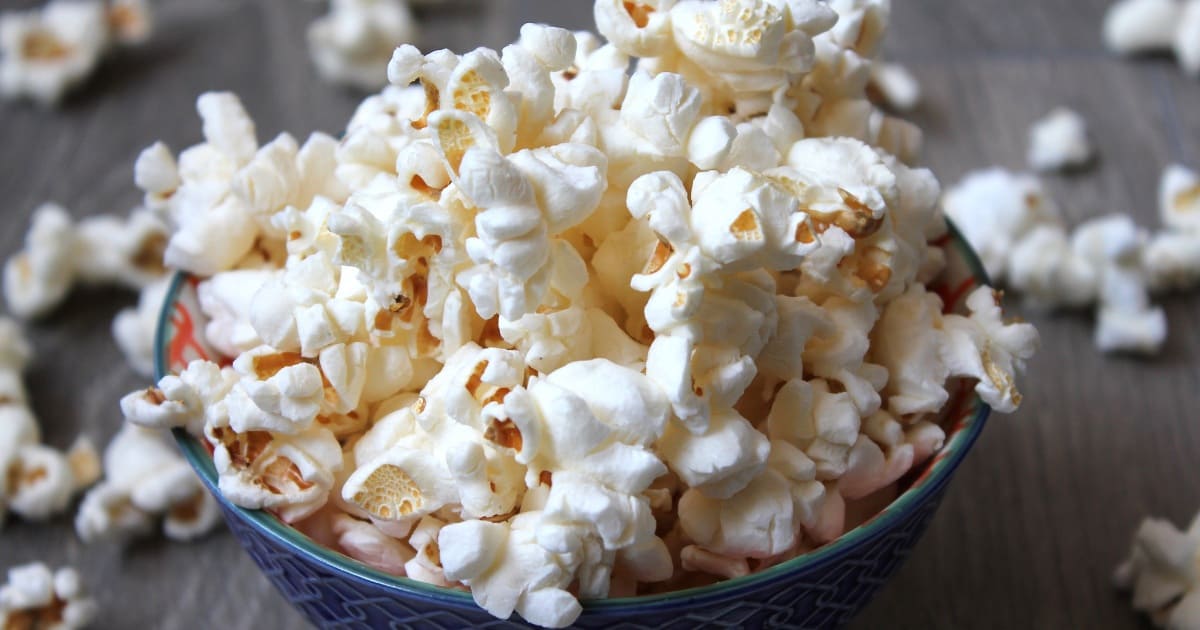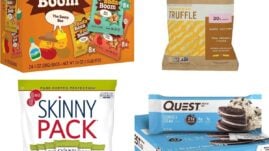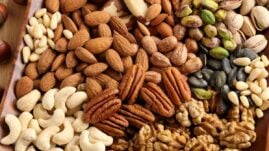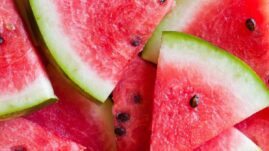If you live with diabetes, managing what you eat while maintaining good blood sugar levels can be complicated.
Between counting carbohydrates for meals and taking medications accordingly, it can be exhausting. But we’re still human, and everyone enjoys a good snack now and again!
When it comes to snacking, popcorn is extremely popular all around the world.
It is a simple-to-make snack that can be eaten salty or sweet and enjoyed watching movies, at the beach, or even at sporting events.
But is popcorn a good snack when you live with diabetes?
This article will tell you everything you need to know about eating popcorn when you live with diabetes.

Table of Contents
Snacking with diabetes
People with diabetes are used to being told what they can and cannot eat, not to mention how much and when!
We’re used to having snacks on hand to treat low blood sugar, but every once in a while, we just want to enjoy a regular snack between meals.
Snacking with diabetes can become pretty complicated.
Issues like insulin-on-board, high blood sugar levels, and carbohydrate counting make it tough to enjoy snacking when living with diabetes.
However, many people enjoy snacks and have diabetes, and if you’re hungry between meals, you should, too!
Snacks can be a great way to not only sustain us between meals, but when prepared correctly, can help stabilize blood sugar levels.
What are the health benefits of popcorn?
When prepared healthily, popcorn can have many good health benefits.
The following are reasons why you may want to choose popcorn as your next snack:
Low glycemic index
The glycemic index (GI) is the measure of how fast something raises blood sugar.
Popcorn’s GI is relatively low, coming in at 55. This is much lower than other salty snacks, such as potato chips, whose GI is 70.
The glycemic index is ranked into three categories:
Low: 0-55
Medium: 56-69
High: 70+
This makes popcorn a pretty smart snack, especially if you have diabetes.
It has 21 grams of carbohydrates per serving.
However, these are complex carbohydrates, and won’t immediately spike blood sugar levels.
Popcorn also only has around 100 calories per serving, making it a low-GI, low-calorie snack.
Full of fiber
Popcorn is full of fiber, which is great for digestive health and regular bowel movements.
Fiber also keeps you fuller for longer, preventing overeating, and helps to stabilize blood sugar spikes.
According to the United States Department of Agriculture (USDA), a typical serving of popcorn is 3 cups (24 grams) and has 3.5 grams of fiber.
Most Americans should aim for between 25-30 grams of fiber per day, making a serving of popcorn a great contribution to your overall daily goal!
Whole grain snack
Popcorn is 100% whole grain!
Unlike other salty snacks that are full of refined grains, popcorn is naturally whole grain.
Eating one serving provides you with nearly a third of your daily requirements for whole grains.
Whole grains help to lower bad cholesterol (LDL), increase good cholesterol (HDL), lower triglycerides, and even lower the risk of developing type 2 diabetes and heart disease.
Eating popcorn is an easy and delicious way to get your whole grains.
Contains vitamins and antioxidants
Popcorn contains many vitamins, minerals, and antioxidants, including the following:
- Folate
- Niacin
- Riboflavin
- Thiamin
- Pantothenic Acid
- Vitamin B6
- Vitamin A
- Vitamin E
- Vitamin K
You won’t find this many vitamins and minerals in other tasty snacks.
This is definitely something to keep in mind when reaching for something to munch on when you’re hungry!
What do you have to be wary of when eating popcorn?
Popcorn can be a great low-carbohydrate, high-fiber, and low-calorie snack.
However, you need to be careful of toppings.
Toppings such as butter, salt, and sugar can add a lot of calories, saturated fats, sodium, and unnecessary sugar to an otherwise pretty healthy snack.
For instance, a large popcorn from Regal Cinemas has 1,235 calories, taking your low-calorie snack from just that to almost all the calories you need for an entire day!
Kettle corn, by some estimates, can have more than 560 calories and 53 grams of carbohydrates in 100 grams (13 cups), most of them pure sugar. (For reference, a large movie popcorn contains roughly 17 to 20 cups of popcorn.)
This is why you need to be careful of what you’re putting on your popcorn.
If you’re out at a sporting event or movie, always opt for a smaller size, and ask for butter on the side.
Should people with diabetes eat popcorn?
Popcorn can be an excellent snack choice if you live with diabetes.
It is great for heart health and in preventing type 2 diabetes.
Popcorn can make you feel fuller for longer, so it’s hard to overeat the treat.
A serving size is nearly 3 cups, so if you tend to graze on snacks, popcorn can be a great choice for you.
However, popcorn often comes with unhealthy toppings, such as butter, salt, and sugar.
This can send the number of calories, carbohydrates, added sugars, and saturated fats in the snack soaring.
Be mindful of portion sizes, and always aim for a smaller size.
If you’re eating popcorn with toppings, ask for them on the side.
It is healthiest to make popcorn at home, so you know exactly what is going into your treat.
How to incorporate popcorn into your diet
If you wish to incorporate popcorn into your diet, the following strategies can help:
- Make popcorn at home
- Add healthier toppings, such as nutritional yeast, pepper, low-fat grated cheese, chile flakes, or extra virgin olive oil (EVOO)
- Choose smaller portion sizes, especially when ordering popcorn
- Measure out your popcorn, and take insulin as appropriate
- Ask for toppings on the side, if you are able
- Be wary of kettle corn, which is almost always made with tons of added sugars
Do I have to take insulin for popcorn?
This will all depend on your insulin-to-carbohydrate ratio, correction factor, and insulin sensitivity ratios.
On its own, popcorn does not have many carbohydrates (around 21 grams for 3 cups.)
If you’re just having one cup of plain air-popped popcorn, you may not need to take insulin for the 7 grams of carbohydrates.
However, many people will need to cover the carbohydrates in even one cup of popcorn with insulin. It all depends on your insulin sensitivity and the amount of insulin resistance you may have.
You will need to count carbohydrates and dose insulin accordingly if you’re eating popcorn with sugar toppings.
Talk with your doctor if you’re concerned about how to bolus insulin for popcorn.
Can popcorn help me lose weight?
Popcorn can be a great alternative snack choice for those trying to lose weight—especially because it is full of filling fiber, which helps people eat less.
Air-popped popcorn is also low in calories, making this a great snack in lieu of pretzels, chips, ice cream, or other sugary, calorie-laden snacks.
Talk with your doctor if you have diabetes and are looking to lose weight.
They can offer suggestions individualized to you, and may also refer you to a registered dietitian (RD) who can formulate an appropriate meal plan to aid in your weight loss goals.
Is popcorn gluten-free?
Yes! Popcorn is a naturally gluten-free snack, making it a great choice for people who have both Celiac disease and other gluten sensitivities.
However, always check the label of any prepackaged popcorn you eat, as it may have been processed in a facility that separately prepares foods containing gluten.
To be safe, if you have Celiac disease or other gluten sensitivities, look for popcorn that has been certified as gluten-free.



